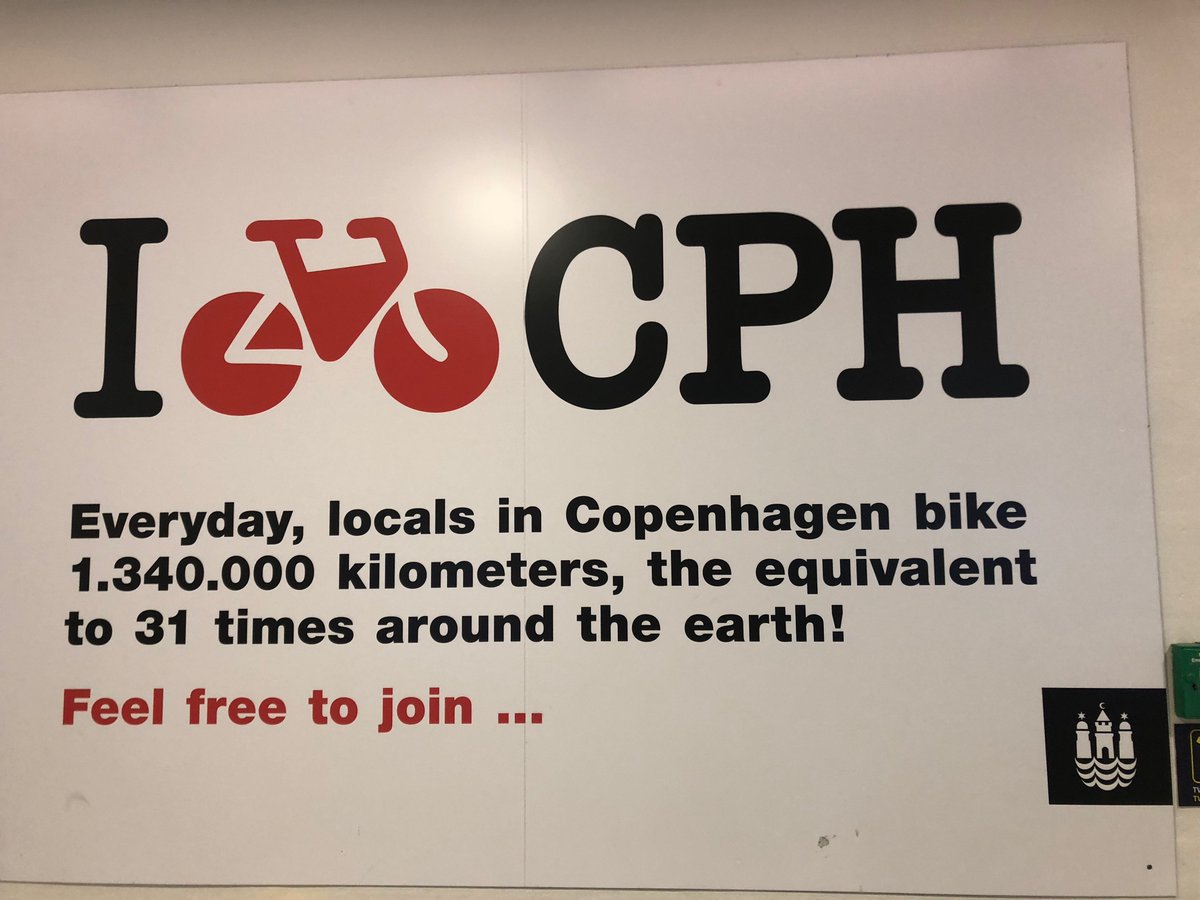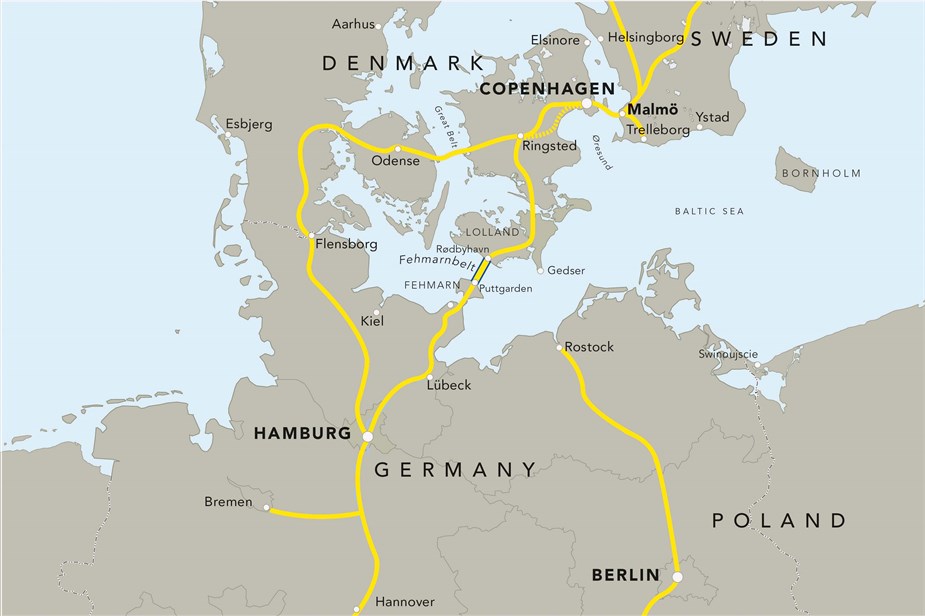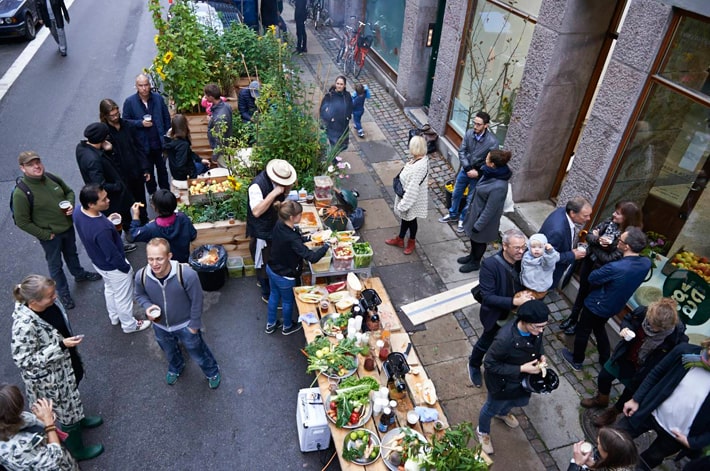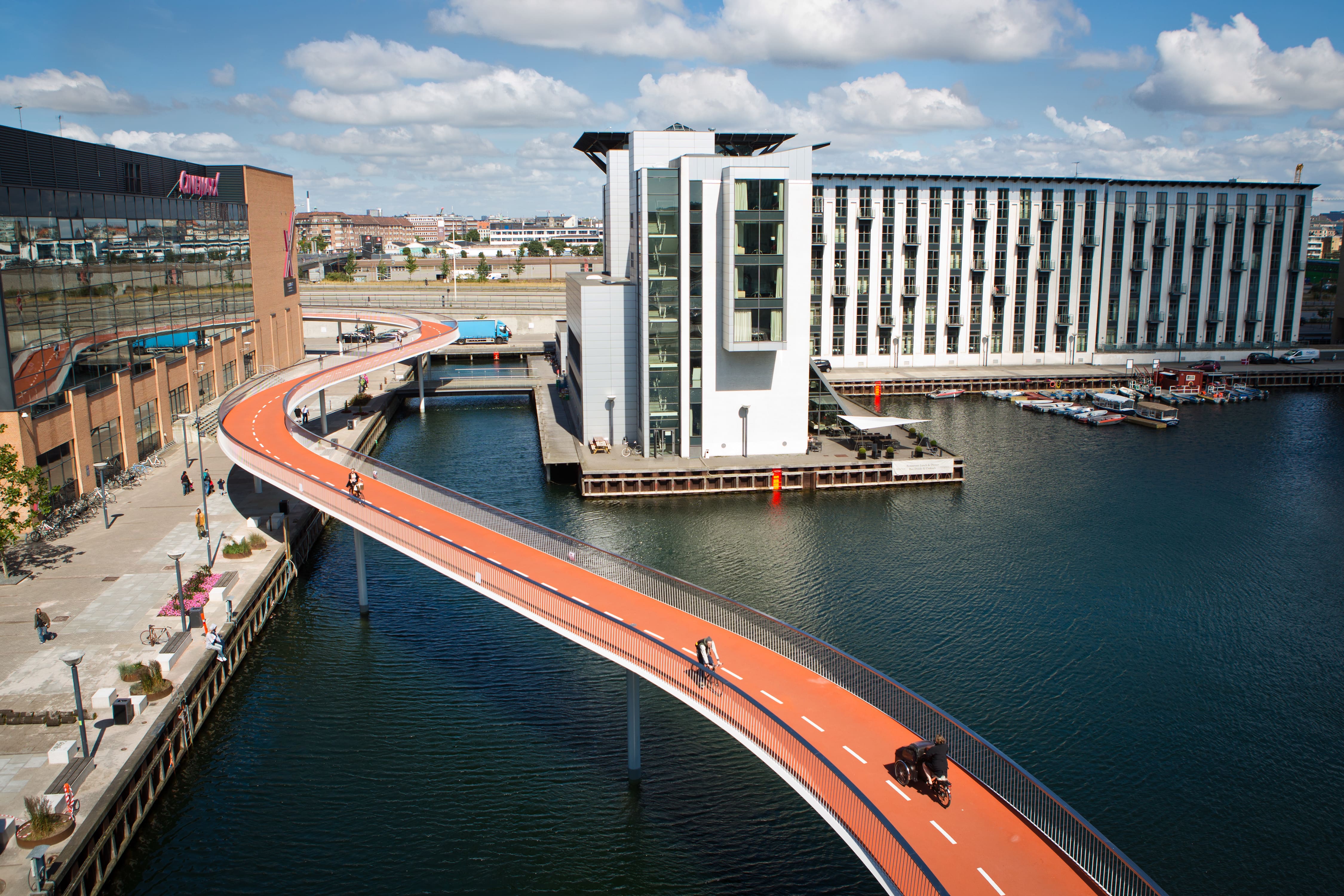Photo: Kontraframe
Video from World Economic Forum
Article main source: https://international.kk.dk/
Copenhagens Ambitious Goals
The City of Copenhagen has set itself ambitious goals for the city’s social, economic and environmental development. Copenhagen is to be carbon neutral by 2025 as the first capital in the world.
Therefore, Copenhagen is collaborating with companies and knowledge institutions to find new solutions to specific challenges. The City of Copenhagen is also striving to increase documentation of its green efforts and to target new initiatives based on available data and evidence.
In 2014 the London School of Economics showed in a report based on extensive analysis why they consider Copenhagen to be a “green economy leader”. Even to those familiar with the Copenhagen story, it makes impressive reading. Among many other things, the report shows that Copenhagen has managed over a long time horizon to develop into a very compact and transport-effective city, even compared with other cities such as Stockholm and London.
As The Capital of Sustainable Development Copenhagen welcomes the UN SDG’S
The City of Copenhagen’s action plan is a contribution to the global discourse on operationalizing the SDGs at the city level in relation to social, economic and environmental sustainability as well as the first sod in the city’s long-term work with the goals.
The City of Copenhagen welcomes the UN SDGs and looks forward to contributing to their realization, locally in Copenhagen as well as globally!
The SDGs are to be applied to the Copenhagen context
The City of Copenhagen already contributes significantly to the sustainability agenda. The city’s existing policies and strategies all contain ambitious goals in relation to all 17 SDGs, and we are well on our way to achieving them. The climate plan’s goal of a CO2-neutral Copenhagen by 2025 and the goal to ensure that 95% of young people obtain a post-secondary education or higher education are just two examples. International studies such as the Sustainable Solutions Network’s “SDG Index Report” also point towards Denmark being one of the countries with the best prospects for contributing to the realization of the SDGs before 2030.
Copenhagen is helping realize the goals through large parts of the city’s political and administrative efforts as well as abroad through city partnerships such as C40. The aim is to find ways to make the world’s metropolises more sustainable. These partnerships allow Copenhagen to spread its local solutions to cities around the world. The City of Copenhagen is not only striving to become one of the most sustainable cities in the world; it must also be one of the cities that has the highest impact on making the world more sustainable.

What do the 17 SDGs mean to cities?
70% of the world’s population is expected to live in cities by 2050. A sustainable world, therefore, starts with sustainable cities. All 17 SDGs are relevant to metropolises, and with Goal 11 on sustainable cities, the world’s cities have been given a key role in achieving the goals by 2030. This applies not least to Denmark, which is at the forefront when it comes to decentralization. No less than 64 % of public expenditure is administrated by municipalities and regions, which places Denmark in third place globally in terms of economic decentralization according to the OECD.
The City of Copenhagen looks forward to working together with other Danish municipalities, regions and the Danish government on the SDGs. Copenhagen aims to work together with global metropolises, sharing solutions and inspiring efforts to realize the overarching goal on a more sustainable world by 2030.
Read the City of Copenhagen’s action plan
Follow the City of Copenhagen’s SDG-Twitter here: https://twitter.com/CitySdg
PDFThe Capital of Sustainable Development_Sustainable Development Goals_2018
Copenhagen is among the top 5 fastest growing big-city destinations in Europe and is a growth engine for Denmark.
Since 65 % of the world’s GDP is generated in cities, it is essential to optimally exploit the growth opportunities in the capital city. The goal of the City of Copenhagen’s ‘Business and Growth Policy’ is to become Northern Europe’s leading business metropolis – where growth and quality of life go hand in hand. By 2020, the annual GDP growth will have increased to 5 %, with an estimated 20,000 new private jobs created, and productivity will have increased by 4 %. These ambitious goals will be achieved through strengthening and maintaining Copenhagen as an open city that attracts international companies, investments, highly skilled international professionals, tourists, and big events.
Read more about Copenhagen`s Business and Growth Policy.
Creating the liveable city
We will create urban space which invites people to an urban life. We know that urban life arises if people feel safe, if it is clean, there is something to sit on and something to look at.
We know it is good for urban life when there is a mix of homes, culture, workplaces, and shops. We know that Copenhagen already has some of the world’s premium urban space but we can and must be even better, both when we make changes in the city we already know and when it is a matter of new builds.
Copenhagen is rated continuously among the most livable cities in the world. Copenhagen is a growing metropolitan with an ambitious approach to urban planning and green living. New sustainable city districts are on their way, and with the architecture to match. Planning a city for life – and cycling – now goes by the term ‘Copenhagenization’
”A metropolis for people” – Visions and goals for urban life in Copenhagen 2015
We will become the world’s most liveable city: a sustainable city with urban space inviting people to a unique and varied urban life. We will become a metropolis for people.
Read “A metropolis for people”
”Copenhagen City of Architecture” – The architecture policy of the city of Copenhagen
The main objective of the architecture policy is to facilitate the dialogue with building clients, architects, planners and landscape architects about plans and projects, but in addition, it should offer anyone interested in the urban architecture and spaces an insight into the key goals and focus areas of the City of Copenhagen.
Read “Copenhagen City of Architecture”
”Urban life account 2013” – Trends in Copenhagen’s urban life 2013
Urban Life Account 2013 outlines key trends and present surveys and figures for urban life as well as statements from local citizens about their experiences and opinions. We take stock of the three goals and look at the development of urban life, annual variations, the impact of weather etc. This helps us review our efforts and determine what works.
Read “The Urban life account 2013”

An Internationally-Connected Region
The City of Copenhagen is engaged in regional and international relations. To expand the visibility of the solutions that are employed, tested and demonstrated in Copenhagen we work to promote the city as an international showcase for smart green solutions. We do this by establishing showcase platforms, membership of international city networks and other means that showcase the solutions to a wider global audience. On the regional level, Copenhagen cooperates closely with the neighboring regions in order to create an attractive business region.
C40
Copenhagen is an active player within the C40, a network of some of the world’s largest cities, which recognize the need for cities to take action and cooperate on reducing climate emissions.
In 2014, the Lord Mayor of Copenhagen was elected to the Steering Committee of C40 and represents the 20 Innovator cities in C40 which demonstrate clear leadership in environmental and climate change work. http://www.c40.org/
Eurocities
Eurocities is a network of major European cities, representing more than 120 million Europeans in 140 cities. The network cooperates with EU institutions to respond to issues that impact the day-to-day lives of citizens. The political work aims at influencing European legislation in a way that allows cities to address strategic challenges such as climate, growth, and employment at the local level in an effective and innovative way. Eurocities’ thematic forums, working groups, projects and events provide Copenhagen with opportunities to share knowledge, exchange experiences and develop innovative solutions together with other large member cities.
http://www.eurocities.eu/
Greater Copenhagen
Copenhagen cooperates closely with neighboring regions and with the region of Skåne in Sweden to address the increasing global competition in attracting business, tourists, and talent. Under the common brand of ‘Greater Copenhagen’, the region offers great business opportunities, 11 universities, a well-educated workforce, strong infrastructure, and world-class knowledge clusters.
Read more about business opportunities in Copenhagen at Copenhagen Capacity.
Sister City Agreement with Beijing
In 2012, Beijing and Copenhagen signed a Sister City agreement. This was followed by a series of additional agreements to collaborate in certain areas, e.g. sustainable urban development and tourism.
The two capitals continue to strengthen their ties and identify new areas of cooperation. Most recently, a new MoU on water was signed in connection with the Lord Mayor of Copenhagen’s visit to Beijing in December 2014.
Fehmarn Belt
By 2021/22, the Fehmarn Belt Fixed Link will integrate the Copenhagen region and northern Germany by reducing travel time by up to2 hours between Denmark and Hamburg. This will provide new opportunities for growth and jobs along the axis of Malmö-Copenhagen-Hamburg. In 2011, Hamburg and Copenhagen signed a letter of intent to intensify the co-operation between the two port cities in various areas, including urban planning, life sciences, clean-tech, and tourism.
http://www.femern.com/

INSTANT CITY LIFE – Harvest Festival – Photo: Henrik Helweg Larsen
Copenhagen facts
Gateway to Northern Europe:
- Home of Europe’s most efficient airport.
- World class metro takes you from the airport to the city center in 15 minutes.
- Fehmarn Belt will integrate Copenhagen and Northern Germany in 2021
Access to 3.8. million people:
- 11 universities
- 150,00 students and
- 10,000 PhD students
Copenhagen is growing:
- 20 percent population growth by 2025
- 45,000 new housing units
- 2.8 million m2 of retail, office, cultural and educational space to be built during this period
Green growth:
- OECD: World leader in green growth
- On its way to becoming carbon neutral by 2025
- European Green Capital 2014
Liveability:
- Monocle: Most liveable city in the world 2014
- Danes are more content with their lives than people in any other OECD country
- One of the world’s least corrupt countries and one of the most egalitarian societies
Business:
- The World Bank: Europe’s easiest place to do business (2014)
- Standard & Poor’s: AAA rating
- Creative businesses in Copenhagen employ 70% more people than the European average
More information can be found on these links
Wonderful Copenhagen becomes the Worlds first Carbon Neutral Capital by 2025





8 Comments
Pingback: The World's Sustainable Gazette - Bergensia
Pingback: Goal 11: Sustainable Cities and Communities - Bergensia
Pingback: Bergensia just passed a 1000 articles - Bergensia
Pingback: Paris: Pioneering the 15-Minute City Concept - Bergensia
Pingback: autoevakuト…ija
Pingback: autoevakuators
Pingback: Springfield carts
Pingback: ấu dâm